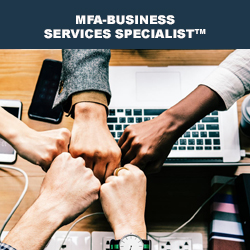Last updated: November 13 2019
Small Business Audits: Six Figures Owing on Average

Beth Graddon
Business owners: the burden of proof in an audit is on you. That’s the message the CRA is sending to businesses since close to $1.2 billion has been identified (but not necessarily collected) through audits of small and medium-sized enterprises (SMEs), which represents a big win for the tax department. So, what can you do to prepare a potential defence before year-end should your business be next?
It’s critical to the health of the business because the CRA notes the average amounts owing were a whopping $137,000 for small businesses, and $338,000 per medium businesses. To be audit-proof, check  out the most recent common concerns identified through the audits.
out the most recent common concerns identified through the audits.
- Unreported income
- Capital transactions
- Corporate reorganizations and restructurings
- Ineligible expense claims
- Related-party transaction
CRA officials have clarified that they have several ways of obtaining information for an SME audit:
- By applying the CRA’s regular inspection powers
- By issuing a request for information (RFI) to either the taxpayer or a third party (such as a bank). This includes indirect verification of income (IVI) tests
- By securing a compliance order via an application to the courts if the information is not provided voluntarily
How Can Advisors Help Businesses Remain Audit-Proof with the CRA?
In assessing and analyzing the client’s information, you will need to:
- Analyze and account for all and any different sources of income;
- Understand key transactions which occurred in the taxation year;
- Identify and analyze tax-sensitive items;
- Reconcile shareholder loan transactions;
- Assess the potential for “tax-risk”; and
- Document your file with the required support.
Also, be sure to verify sources of income, including:
- Active business income, eligible for the Small Business Deduction
- Active business income, not eligible for the Small Business Deduction
- Specified investment business income
- Rental income (leasing of real property)
- Capital gains and losses
- Personal services business income
- Non-capital losses
While not exhaustive, the following list contains tax-sensitive items corporations typically need to watch out for:
- Automobile expenses - vehicle(s) owned by the corporation (restriction on deductibility of capital cost allowance, lease payments)
- Meals and entertainment (only 50% deductible)
- Life insurance premiums (may not be deductible, one exception is if insurance is assigned to a corporate loan at request of a lender)
- Personal or shareholder related/personal-use (not deductible)
- Advertising and promotional (not deductible if it includes club dues/non-business memberships)
These important tips are excerpted from Corporate Income Tax Fundamentals.
Additional educational resources: Enhance your own education as a business owner or specialize in corporate taxation to help business owners in Canada file audit-proof returns for the 2019 tax season and beyond. Enrol in the MFA™-Business Services Specialist designation today.
COPYRIGHT OWNED BY KNOWLEDGE BUREAU INC., 2019.
UNAUTHORIZED REPRODUCTION, IN WHOLE OR IN PART, IS PROHIBITED.

